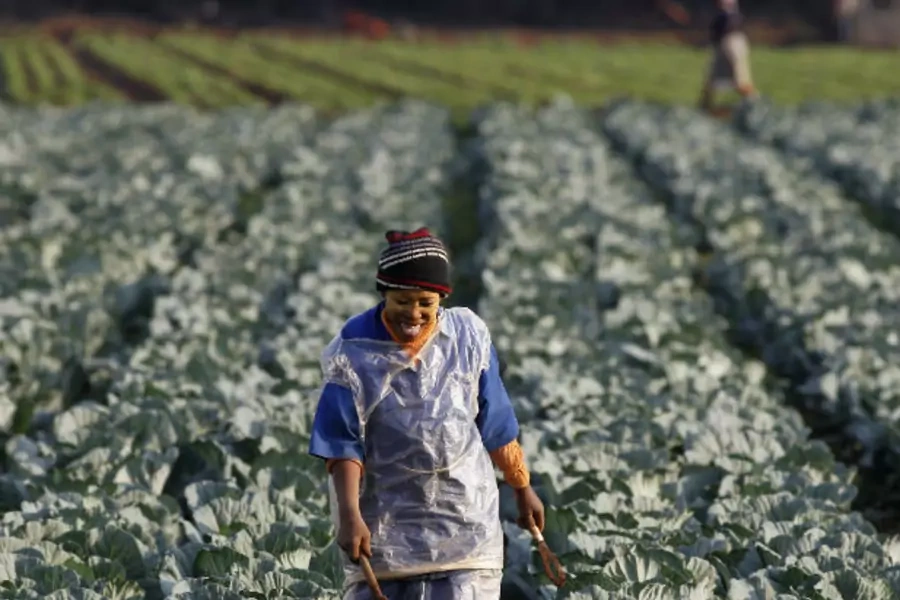More on:
Zuma must walk a fine line, especially on land.
Much or most of South Africa’s land remains in the hands of whites, and land reform proceeds at a snail’s pace—making it a source of grievance among many blacks. When Nelson Mandela was president, his plan stated that blacks would own thirty percent of land by 2014; today, they only own eight percent. It has been exploited by Julius Malema, the former head of the youth league of the governing party. (Proposals for the seizure without compensation of white-owned land and for the nationalization of the mines have also been floated by parts of the African National Congress.) Malema is a political enemy of President Jacob Zuma, who will likely face a leadership challenge at the December party conference.
Zuma, his government, and the senior leadership of the ANC recognize that Malema’s proposals would have disastrous consequences for attracting domestic and foreign investment the economy needs if it is to grow. South Africans also know that President Robert Mugabe’s seizure of white-owned land in Zimbabwe destroyed that country’s commercial agriculture and subsequently the rest of the economy and led to widespread hunger. But, interest in land seizure and nationalization of the mines reflects slow South African economic growth in the context of an expanding population. Too slow growth has resulted in soaring levels of unemployment (about a quarter of the workforce) and has left most of the black majority in poverty twenty years after the end of apartheid.
At a June 26 ANC policy conference, Zuma stated that the current “willing buyer, willing seller” model of land reform “must be reviewed.” ANC spokesmen often say that this model is enshrined in the constitution – which, therefore, must be changed.
In response to Zuma’s remarks, the opposition Democratic Alliance shadow minister of justice and constitutional development has pointed out the constitution in fact has no such requirement for any particular model for land reform. He said the constitution’s property clause provides that the government may expropriate land subject to compensation, whether the seller agrees or not. The court sets the amount and must strike a balance between the public interest and the interests of those affected. So, the shadow minister concludes, the failure of land reform is caused by the ANC government, not the constitution.
The reality is that land reform is inherently expensive, and no government since the establishment of “non-racial democracy” has chosen to divert scarce resources to accelerate its pace. Further, South Africa’s commercial agricultural sector – though heavily subsidized by the state – is a significant contributor to the country’s economy. So the challenge is land reform that preserves the economic viability of the agricultural sector.
But, for the poor and the aggrieved in the townships or in rural settlements, land distribution is yet another injustice that the ANC government has failed to address.
More on:
 Online Store
Online Store
